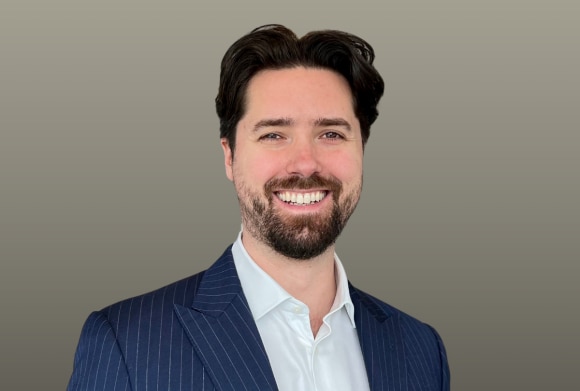Meet the experts
Richard Mylles: Focus on facts and benefits
The transition to a more sustainable economy involves costs and benefits. We should recognize both but focus more on the latter.

![]()
header.search.error
Meet the experts
The transition to a more sustainable economy involves costs and benefits. We should recognize both but focus more on the latter.
Richard is a research analyst at the Institute with a focus on real estate and other macro-economic issues. Prior to joining UBS, he spent more than 10 years writing investment research for institutional investors. Richard started his career analyzing political economies, before shifting his focus onto energy markets and then energy transition themes.

How did you first encounter sustainability and why did you decide to dedicate your career to it?
I wrote investment research with a focus on politics and energy markets for a decade. This was my gateway into the energy transition and ESG. To my mind, the energy transition is as much a socio-political challenge as it is one of climate. As with any economic transformation, there are costs as well as benefits, but where and how they fall is a political question. How that question is answered is essential to the speed of transition, which in turn is essential to the level of warming.
Transitioning the global economy from an unsustainable path to a sustainable one is something we have in our capacity to do. It is our generation’s great challenge and duty, and how we respond will define how we are viewed by subsequent generations.
What should everyone know about energy investments and its implications on climate?
The three most important things are: First, climate science is clear—climate change is mainly caused by anthropogenic emissions. That’s important because the belief that climate change is human-caused is closely associated with agreeing that we should use less fossil fuels. A lack of awareness of the science risks holding back the transition.
Second, transitioning away from fossil energy is achievable. McKinsey estimates the current investment gap to achieve Net Zero to be around 3% of GDP per year, globally.1 This is a considerable, but surmountable challenge. And third, transition comes with numerous other benefits, both economic and social.
I think there is too much focus on emissions and not enough on what the actual, tangible benefits of transition can be to everyone, from better air quality if pollution is brought down, to better health outcomes if buildings are better insulated and ventilated.
Have you seen capital allocators make a real impact in the energy transition?
Yes. In the first instance, private capital is expected to carry two thirds of the burden of transition finance through to 2050. The transition simply cannot happen at the speed required without capital allocators directing finance to where it’s going to have the best return, in financial and climate terms. Then there is financial innovation, from green bonds to blended finance, which contributes to unlocking the resources needed by innovative companies driving transition progress.
Beyond capital allocation, investors also help to shift norms and behaviors among companies via their engagement efforts and signaling to company management. Finance cannot do it alone—all stakeholders, from companies, governments, and NGOs to consumers need to step up as well—but it is an essential piece of the puzzle.
What is the role of politics in transition finance?
First, it can increase the supply of public transition finance, and second, it can encourage the provision of private transition finance by putting appropriate incentive structures in place. Beyond that there are the questions of guidance, signaling, and achieving consensus.
There are various routes to decarbonizing the economy, with different winners and losers in each—this makes the transition unavoidably political. However, if the political debate focused on the facts and the benefits it would be out of the question that we must transition. That in turn would reduce the need for firms and investors to hedge the risk of a political pivot against it, while likely fueling public pressure on companies to adopt more sustainable practices.
What is your most and least sustainable behavior?
I don’t have a car and try to walk and use public transport as much as possible, although I appreciate that’s easier for me as I live in a big city. My least sustainable habit is probably flying for holidays—sadly an occupational hazard of living in rainy old England.
For further information, please read our thought leadership disclaimer